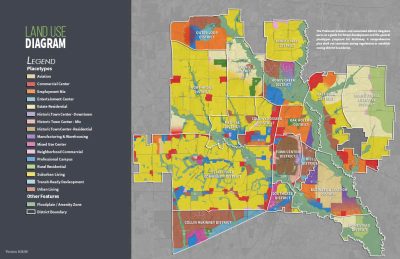Are you dreaming of owning a piece of the Lone Star State? Texas offers some of the most diverse and affordable land opportunities in the United States, from sprawling ranch properties to residential lots perfect for building your dream home. How to buy land in Texas is a little longer then most of our blogs but we wanted to cover a few more details then we did in our May post.
This guide walks you through every step of purchasing land in Texas, from initial research to closing day, ensuring you avoid common pitfalls and make informed decisions throughout your land-buying journey.
Why Buy Land in Texas?
Texas stands out as an exceptional state for land investment due to several compelling factors:
Economic Growth: Texas continues to experience robust population growth and economic expansion, driving demand for both residential and commercial land development.
Diverse Geography: From East Texas forests to Hill Country vineyards, from Gulf Coast properties to West Texas ranches, the state offers virtually every type of terrain and climate.
No State Income Tax: Texas residents enjoy significant tax advantages, making land ownership more affordable long-term.
Favorable Property Laws: Texas has well-established property rights and relatively straightforward land transfer processes.
Step 1: Define Your Purpose and Budget
Before you start browsing listings, clearly define why you’re buying land. Your intended use will significantly impact your search criteria, financing options, and legal requirements.
Common Land Uses in Texas:
- Residential development (building a primary or secondary home)
- Investment and speculation
- Agricultural purposes (farming, ranching, hunting)
- Commercial development
- Recreational use (camping, hunting, fishing)
Establishing Your Budget: Consider all costs beyond the purchase price, including:
- Down payment (typically 15-25% for land loans)
- Closing costs (2-5% of purchase price)
- Survey fees ($500-$3,000 depending on property size)
- Title insurance (0.5-1.0% of purchase price)
- Legal fees ($500-$2,000)
- Property taxes (ongoing)
- Development costs (utilities, roads, septic, well)
Step 2: Research Texas Land Markets
Texas land values vary dramatically by region, so thorough market research is essential. Current average land prices exceed $4,600 to $7,300 per acre (Some areas are much higher), but this varies significantly based on location, accessibility, and development potential.
Key Factors Affecting Land Values:
- Proximity to major cities (Austin, Houston, Dallas, San Antonio)
- Access to utilities and infrastructure
- Water rights and availability
- Soil quality and topography
- Zoning restrictions and development potential
- Market trends in the specific county or region
Research Resources:
- County appraisal district websites
- Texas A&M Real Estate Center
- Local Multiple Listing Services (MLS)
- Land-specific websites and brokers
- Recent comparable sales data
Step 3: Understand Zoning and Land Use Restrictions
Texas land use regulations vary significantly between counties and municipalities. Urban areas typically have more restrictive zoning, while rural areas may have fewer limitations but still important restrictions.
Key Considerations:
- Agricultural exemptions and their requirements
- Building restrictions and setback requirements
- Environmental regulations and flood zones
- Homeowners association rules (if applicable)
- Mineral rights and oil/gas lease implications
- Water rights and usage restrictions
Research Requirements: Contact the local planning and zoning department to understand:
- Current zoning classification
- Permitted uses and restrictions
- Future development plans for the area
- Required permits for your intended use
Step 4: Secure Financing
Land financing differs significantly from traditional home mortgages. Most land loans require a minimum of 15 to 20 percent down payment, plus cash to cover closing costs. Here is a great article on financing.
Financing Options:
Traditional Banks: Often require higher down payments and may be selective about land types and locations.
Credit Unions: Frequently offer competitive rates and may be more flexible with rural or agricultural land.
Specialized Land Lenders: These lenders focus specifically on land purchases and often understand the nuances of land purchases better than traditional banks.
Owner Financing: Some sellers offer financing directly, which can provide more flexible terms.
Cash Purchase: Provides the strongest negotiating position and eliminates financing contingencies.
Loan Requirements: Banks may ask for proof of income, tax returns, and a detailed purpose for the land, such as farming or residential use.
Step 5: Work with the Right Professionals
Assembling the right team is crucial for a successful land purchase in Texas.
Essential Team Members:
Real Estate Agent: Choose someone specializing in land sales in your target area. They should understand local market conditions, zoning laws, and development potential.
Real Estate Attorney: While not required in Texas, an attorney can help navigate complex transactions, especially for larger purchases or unique circumstances.
Land Surveyor: A current survey is often essential for determining exact boundaries and identifying potential issues.
Title Company: Handles the closing process and provides title insurance protection.
Environmental Consultant: May be necessary for properties with potential environmental issues or for commercial development.
Step 6: Conduct Thorough Due Diligence
This is perhaps the most critical phase of the land buying process. Proper due diligence can save you from costly mistakes and legal issues.
Property Research:
- Verify legal description and boundaries
- Check for liens, encumbrances, or legal disputes
- Review property tax history and current assessments
- Investigate any easements or rights-of-way
- Confirm mineral rights ownership
- Research flood zone designations
Physical Inspection:
- Walk the entire property boundary
- Identify any structures, improvements, or issues
- Evaluate access roads and utilities availability
- Check for signs of environmental problems
- Assess drainage and soil conditions
- Look for evidence of previous land use
Utility Availability:
- Electricity connection possibilities and costs
- Water well feasibility or municipal water access
- Septic system requirements or sewer connections
- Internet and cellular service availability
- Natural gas availability (if needed)
Step 7: Obtain a Professional Survey
While you aren’t required to have a survey unless the title company requires it or you want “boundary coverage” with your title policy, it’s usually a good idea to get a new survey.
Survey Benefits:
- Confirms exact property boundaries
- Identifies encroachments or boundary disputes
- Locates easements and rights-of-way
- Helps determine building sites and setbacks
- Required for most title insurance coverage
Survey Requirements: Any land survey used in connection with title insurance must be current and if any changes to the property have been made, mainly if structures have been built, a new survey will be needed. If the current owner has a survey, this may save you some money, but the title company will need to review the survey and approve it.
Step 8: Secure Title Insurance
While Texas does not require title insurance, lenders will require you to buy a Loan Policy of Title Insurance to protect their interest.
Title Insurance Benefits:
- Protects against title defects and legal challenges
- Covers survey issues (with appropriate coverage)
- Provides legal defense against title claims
- One-time premium provides lifetime coverage
Cost Considerations: The cost of title insurance in Texas usually ranges from 0.5% to 1.0% of the property’s purchase price.
Step 9: Negotiate and Execute the Purchase Contract
Texas land contracts should address specific considerations unique to raw land purchases.
Key Contract Elements:
- Purchase price and earnest money
- Closing date and possession terms
- Financing contingencies
- Survey requirements and who pays
- Title insurance and who pays
- Property tax prorations
- Mineral rights specifications
- Water rights and usage
- Access rights and easements
- Environmental contingencies
Negotiation Strategies:
- Research comparable sales for pricing guidance
- Consider seller financing options
- Negotiate survey and closing costs
- Include appropriate contingencies for due diligence
- Specify exactly what’s included in the sale
Step 10: Prepare for Closing
The closing date depends on several factors, including time to get an appraisal and survey, turn around time for a title commitment, and the time it takes for your lender to go through the underwriting process.
Pre-Closing Tasks:
- Complete final property inspection
- Review all closing documents
- Ensure loan approval and funding
- Confirm title insurance policy details
- Verify all contract conditions are met
- Prepare certified funds for closing
Closing Day Process:
- Review and sign all legal documents
- Transfer funds and receive deed
- Obtain title insurance policy
- Get copies of all important documents
- Receive keys and immediate possession
Step 11: Post-Purchase Considerations
Immediate Actions:
- Record deed with county clerk
- Set up property tax payments
- Establish insurance coverage
- Secure the property if necessary
- Begin planning development or use
Long-term Considerations:
- Regular property tax planning
- Ongoing maintenance and security
- Development timeline and permitting
- Potential for future subdivision or sale
- Environmental stewardship responsibilities
Common Mistakes to Avoid
Insufficient Due Diligence: Rushing through research and inspections can lead to costly surprises.
Ignoring Access Issues: Ensure legal access to your property through recorded easements or public roads.
Overlooking Utilities: Understand the cost and feasibility of bringing utilities to the property.
Inadequate Financing: Secure pre-approval and understand all loan terms before making offers.
Skipping Professional Help: Trying to save money by avoiding attorneys, surveyors, or experienced agents often costs more in the long run.
Mineral Rights Confusion: Understand whether you’re buying surface rights only or both surface and mineral rights.
Understanding Texas Water Rights
Water rights are particularly important in Texas due to the state’s complex water law system.
Key Concepts:
- Surface water rights (regulated by the state)
- Groundwater rights (generally owned by surface owner)
- Water well permitting requirements
- Drought restrictions and usage limitations
- Riparian rights for properties adjacent to water bodies
Agricultural Exemptions and Property Taxes
Texas offers significant property tax savings through agricultural exemptions. Make certain to check out this article on Ag Exemptions
Benefits:
- Dramatically reduced property tax assessments
- Based on agricultural productivity rather than market value
- Available for various agricultural uses including farming, ranching, and timber production
Requirements:
- Minimum acreage requirements (varies by county)
- Proof of agricultural use for tax purposes
- Annual applications and compliance
- Potential rollback taxes if use changes
Building on Your Texas Land
If you plan to build on your land, consider these factors:
Septic System Requirements: Most rural properties require septic systems, which need soil testing and county approval.
Well Water: Drilling costs vary significantly based on depth and water quality in your area.
Electrical Service: Extending power lines to rural properties can be expensive.
Building Codes: While many rural areas have minimal building codes, some restrictions still apply.
Permits: Research required permits for your intended construction projects.
Conclusion
Buying land in Texas can be an excellent investment and the foundation for achieving your dreams, whether that’s building a family home, starting a ranch, or making a smart financial investment. The key to success lies in thorough preparation, professional guidance, and careful attention to the unique aspects of Texas land law.
Remember that land is a long-term investment that requires patience and proper planning. Take time to understand local market conditions, work with experienced professionals, and never rush through the due diligence process. With proper preparation and the right team, you’ll be well-positioned to find and purchase the perfect piece of Texas land for your needs.
The Lone Star State offers incredible opportunities for land ownership, from the Piney Woods of East Texas to the desert landscapes of West Texas. By following this comprehensive guide, you’ll be equipped to navigate the land buying process confidently and successfully.
Whether you’re a first-time land buyer or an experienced investor, Texas land ownership represents both a significant financial commitment and an opportunity to be part of the state’s continued growth and prosperity. Take your time, do your research, and enjoy the journey toward owning your piece of Texas.
Ready to start your Texas land buying journey? Connect with experienced land professionals in your target area to begin exploring available properties that match your goals and budget. Remember, the right piece of land is worth waiting for, and proper preparation today will pay dividends for years to come.




